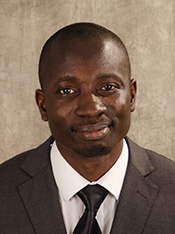Customized approach is key to addressing global health challenges


Health care professionals aim to improve quality of life and health status of their patients, but often times the same strategies don’t apply across all communities. Health care providers must continuously work to understand the needs of their community and share important health information with a culturally appropriate strategy.
This concept is particularly important to students at the Texas A&M Health Science Center School of Public Health, who are not only focused on their own backyards, but across the globe. While communities in China and India may face similar health issues as underserved communities in the U.S., the solutions may not be the same. By working with local health care organizations and visiting local hospitals, students have found that they must develop culturally specific communication methods to properly engage with the vastly different cultures they may come in contact with.
In Ghana, for example, as well as many other African countries, trust between healthcare professionals and journalists is often absent. In a continent rampant with health needs, health care professionals complain that journalists often do not accurately report the information they are given. Conversely, journalists say health professionals rarely will provide interviews at all. So what’s the answer?
“Communication holds the key to building trust and understanding between health professionals and journalists in Africa, a continent where accurate communication about health issues is badly needed,” said Bernard Appiah, Dr.P.H., M.S., B.Pharm, research associate at the Texas A&M School of Public Health.
Appiah grew up in Ghana and learned the importance of building trust between communication sources as a child. He would accompany his late father, who was a “town crier,” responsible for traveling throughout their village and orally disseminating information from their village chief.

Inspired by lessons learned from his father, Appiah formed the Center for Science and Health Communication in 2008 in Ghana. Through the years Appiah and his staff have collaborated with health and media institutions in Ghana to train health professionals and journalists in effective communication strategies and culturally appropriate communication techniques. The mission of the center is to build trust between the two disciplines to increase the public’s understanding of the major public health issues facing their communities. The success of the center has led to recent opportunities for the training of health researchers and journalists to branch out into areas of Uganda and Kenya.
With the help of the center and proper media training, health professionals who previously refused to provide interviews to journalists have now become much more accessible. The center has worked diligently to educate journalists about the health science issues and public health concerns that they may be impacted by. In addition, the center has created an online expert database to help reporters get in touch with media-trained researchers. By creating a network of media and industry contacts, the center has created an atmosphere of trust.
“I can now grant interviews to journalists, especially those who I have met in trainings sponsored by the center, because there is now a mutual trust,” said Eric Sefa. M.D., medical superintendent of Accra Children’s Hospital in Ghana.
The center also emphasizes the importance of culturally appropriate communication to promote health in Ghana.
For example, storytelling and theater productions are effective communication tactics in Africa. Appiah wrote a weekly drama series produced on Ghana television known as “Let’s Talk About Drugs,” which became very popular. The drama brought about discussions in the general public about the appropriate use of medications.
Appiah’s research exposes public health students to effective communication tools they can use when working in underserved and culturally diverse areas. From large, diverse urban areas to rural communities in South Texas where people struggle to overcome gaps in education, language barriers, and various cultural traditions, universal communication strategies are essential to improving their quality of care.
“I truly believe that communication is key to improving the overall health among culturally diverse communities,” said Appiah.
Media contact: media@tamu.edu


